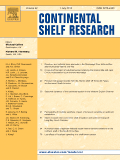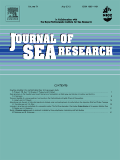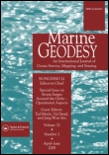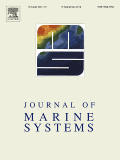
Jurnal Ilmu dan Teknologi Kelautan Tropis
Scope & Guideline
Bridging research and practice in tropical marine technology.
Introduction
Aims and Scopes
- Marine Ecology and Biodiversity:
Research exploring the ecological dynamics, species diversity, and health of marine ecosystems, with a focus on tropical regions. - Coastal and Marine Resource Management:
Studies that analyze and propose management strategies for sustainable use of marine resources, including fisheries and ecotourism. - Impact of Climate Change:
Investigations into how climate change affects marine environments, including sea level rise, temperature fluctuations, and their impacts on marine species. - Technological Applications in Marine Studies:
Use of advanced technologies, such as remote sensing, satellite imagery, and data modeling, to monitor and analyze marine and coastal environments. - Pollution and Environmental Health:
Research addressing the effects of pollutants, such as heavy metals and microplastics, on marine life and ecosystems. - Community and Socio-Economic Studies:
Exploration of the socio-economic aspects of marine resource management, including the impacts on local communities and livelihoods.
Trending and Emerging
- Ecotourism and Sustainable Development:
Research into ecotourism initiatives within tropical marine areas is gaining traction as a means to promote conservation while supporting local economies. - Impact of Climate Change on Marine Species:
A significant increase in studies examining how climate change affects specific marine species, their habitats, and adaptive responses. - Microplastic Pollution:
The examination of microplastic accumulation in marine organisms and ecosystems has surged, reflecting growing global concern over plastic pollution. - Advanced Remote Sensing Techniques:
Emerging use of advanced remote sensing technologies for monitoring marine environments indicates a trend towards incorporating innovative methodologies in marine research. - Community Engagement in Marine Management:
An increasing focus on involving local communities in marine resource management and conservation efforts, emphasizing collaborative approaches.
Declining or Waning
- Traditional Fisheries Practices:
Research focused on conventional fishing methods and practices has decreased, possibly due to a shift towards more sustainable and innovative fisheries management strategies. - Static Habitat Mapping:
There has been a reduction in studies solely focused on static habitat mapping without integrating dynamic environmental factors or technological advancements. - Generalized Climate Studies:
While climate change remains a focus, the specifics of generalized climate studies, without detailed local impacts or adaptation strategies, are becoming less prominent.
Similar Journals

Ocean Science Journal
Advancing Marine Science for a Sustainable FutureOcean Science Journal, published by the Korea Institute of Ocean Science and Technology (KIOST), is a pivotal resource for scholars and practitioners in the field of oceanography. With the ISSN 1738-5261 and E-ISSN 2005-7172, this journal presents cutting-edge research from 2006 to 2024, bridging fundamental and applied ocean sciences. Based in South Korea, with its headquarters located in Busan, the journal has achieved a commendable Scopus rank of #72 out of 145 in the domain of Earth and Planetary Sciences, placing it in the 50th percentile among peer publications. Classified in the Q3 category of the 2023 Oceanography rankings, Ocean Science Journal offers a platform for innovative studies that advance understanding of marine environments and promote sustainable ocean practices. While it does not operate under an open access model, readers and contributors can expect high-quality, peer-reviewed material that addresses pressing oceanic challenges and developments. This journal serves as an essential tool for researchers, professionals, and students committed to fostering marine science and ocean technology.

CONTINENTAL SHELF RESEARCH
Exploring the Depths of Marine KnowledgeCONTINENTAL SHELF RESEARCH, published by PERGAMON-ELSEVIER SCIENCE LTD, is an esteemed journal within the fields of Aquatic Science, Geology, and Oceanography, reflecting a compelling intersection of these disciplines. Since its inception in 1982, this journal has served as a premier platform for disseminating cutting-edge research relevant to the continental shelf ecosystem, including its geological features, biological resources, and physical processes. With a Category Quartile ranking of Q1 in Aquatic Science and prominent Q2 standings in Geology and Oceanography, it is recognized for its rigorous peer-review standards and impactful contributions, evidenced by its respective rankings in Scopus. Researchers and professionals are encouraged to engage with the journal's array of high-quality articles that not only enhance scientific understanding but also inform policy and conservation efforts. This dedication to advancing knowledge makes CONTINENTAL SHELF RESEARCH an essential resource for those passionate about marine and coastal studies in the United Kingdom and globally.

Ocean Science
Charting New Waters in Ocean ResearchOcean Science, published by COPERNICUS GESELLSCHAFT MBH, stands as a premier Open Access journal in the fields of Oceanography and Paleontology, with a commendable impact factor that highlights its influence in the scientific community. Since its inception in 2005, Ocean Science has provided a vital platform for the dissemination of innovative research and discoveries, boasting prestigious rankings of Q1 in both Oceanography and Paleontology categories as of 2023, along with impressive Scopus rankings (7th in Paleontology and 28th in Oceanography). Based in Göttingen, Germany, the journal's commitment to open access ensures that groundbreaking research is readily available to a global audience, fostering knowledge sharing and collaboration among academics, professionals, and students alike. As it converges towards its 20th anniversary in 2024, Ocean Science continues to be an essential resource for those dedicated to advancing our understanding of the marine environment and its geological history.

Journal of Marine Science and Technology-Taiwan
Navigating the frontiers of ocean research and engineering.The Journal of Marine Science and Technology-Taiwan, published by Nant Taiwan Ocean University, is a pivotal academic platform dedicated to the advancement of knowledge in the fields of marine science and engineering. With an ISSN of 1023-2796 and E-ISSN 2709-6998, this journal spans a wide array of topics relevant to the study and application of marine technology from 1998 to 2024. It ranks in the Q3 quartile in major categories such as Mechanical Engineering, Mechanics of Materials, and Ocean Engineering, illustrating its growing influence and the breadth of research it encompasses. Although currently not an open access journal, it provides critical insights to researchers, professionals, and students alike, making significant contributions to the understanding of marine environments and technologies. As the journal continues to evolve, its commitment to high-quality, impactful research remains central to its mission, empowering scholars to drive innovation in the dynamic field of marine science.

JOURNAL OF SEA RESEARCH
Advancing Marine Science for a Sustainable FutureJOURNAL OF SEA RESEARCH, published by Elsevier, is a premier academic journal dedicated to advancing knowledge in the fields of aquatic science, ecology, and oceanography. Since its inception in 1996, this journal has provided a vital platform for researchers and professionals to disseminate groundbreaking findings and promote fostering interdisciplinary discussions. With its impressive Q2 ranking in multiple categories, including Aquatic Science and Ecology, Evolution, Behavior and Systematics, it positions itself as a significant contributor to marine and environmental studies. The journal is accessible in both print (ISSN: 1385-1101) and online formats (E-ISSN: 1873-1414), ensuring wide reach and engagement within the scholarly community. Researchers and students alike will find the journal not only a reliable source of information but also a source of inspiration for future explorations. With a commitment to quality and a broad scope that spans fundamental to applied research, JOURNAL OF SEA RESEARCH remains an indispensable resource for understanding the complexities of marine environments and their relevance to our changing world.

Indian Journal of Geo-Marine Sciences
Charting New Territories in Oceanographic StudiesThe Indian Journal of Geo-Marine Sciences, published by the NATIONAL INSTITUTE OF SCIENCE COMMUNICATION & INFORMATICS (NISCAIR), serves as a vital platform dedicated to the dissemination and advancement of knowledge in the field of marine and geosciences. As an open-access journal, it allows for improved visibility and accessibility of research findings to a global audience, enabling researchers, professionals, and students to share insights into oceanography and related disciplines. With a publication history spanning from 2007 to 2010 and continuing from 2012 to 2024, it has established itself within the academic community as a reliable source of innovative research, despite being classified in Q4 of Oceanography and holding a Scopus rank that places it in the 27th percentile. This journal is particularly relevant for those investigating marine ecosystems, geological oceanography, and their interconnections, thus playing an essential role in fostering understanding and communication within this important area of scientific inquiry.

MARINE GEODESY
Connecting Scholars to the Heart of Marine ResearchMARINE GEODESY, an esteemed journal published by Taylor & Francis Inc, delves into the intricate field of oceanography, aiming to contribute profoundly to the understanding of marine spatial dynamics and geophysical processes. With an ISSN of 0149-0419 and an E-ISSN of 1521-060X, this journal has a commendable standing, currently classified in the 2023 Q2 quartile, reflecting its influential presence in the realm of Earth and Planetary Sciences, particularly oceanography, where it ranks 49th out of 145 journals. Since its inception in 1977 and its ongoing publication until 2024, MARINE GEODESY has been dedicated to disseminating groundbreaking research, case studies, and reviews that are crucial for scholars, professionals, and students engaged in the exploration of marine environments. While currently not an open-access journal, it nevertheless offers vital insights into marine geospatial analytics and geodesy, augmenting the knowledge base necessary for tackling contemporary challenges in marine science and geography.

Marine Biodiversity
Unveiling the Wonders of Oceanic DiversityMarine Biodiversity, published by SPRINGER HEIDELBERG, stands as a pivotal journal in the fields of Aquatic Science, Ecology, Evolution, Behavior and Systematics, and Oceanography. Established in 2009, it has gained a prominent place in academic discourse, evidenced by its Q2 ranking across multiple categories in the latest 2023 assessments. The journal operates out of Germany, specifically from its Heidelberg address, and caters to an international audience with a keen interest in the vast and complex dynamics of marine ecosystems. With an ongoing convergence of research outputs until 2024, Marine Biodiversity encourages contributions that expand our comprehension of marine life and its conservation, positioning itself as a vital resource for researchers, professionals, and students alike. Although currently not an open access journal, it maintains a robust reputation backed by its favorable Scopus ranks, which indicate its significant contribution to the respective fields. By disseminating high-quality, peer-reviewed articles, Marine Biodiversity plays an essential role in promoting scholarly communication and advancement in marine science.

JOURNAL OF MARINE SYSTEMS
Empowering Understanding of Ocean DynamicsJOURNAL OF MARINE SYSTEMS, published by Elsevier, is a leading academic journal dedicated to advancing the understanding of marine systems through interdisciplinary research. With an impressive impact factor and ranking in the Q1 quartile across various categories such as Aquatic Science, Ecology, and Oceanography, this journal has established itself as an invaluable resource for researchers, professionals, and students interested in marine science and its applications. Since its inception in 1990, the journal has been a platform for high-quality studies, offering insights into complex marine ecosystems, their dynamics, and their interactions with human activities. Notably, it is indexed in major databases, which ensures visibility and accessibility for global audiences. Researchers are encouraged to share their findings and contribute to the ongoing dialogue about the health and sustainability of marine environments.

Research in Marine Sciences
Bridging theory and practice in marine studies.Research in Marine Sciences, ISSN 2538-5542, is a leading journal published by ARMAN DARYA INC, specializing in the dynamic and interdisciplinary field of marine science. With a commitment to advancing knowledge in areas such as marine ecology, oceanography, and marine conservation, this journal provides a collaborative platform for researchers, professionals, and students to disseminate their findings. Although it operates under a traditional subscription model, the journal ensures that the latest research is accessible to a wide audience, promoting the understanding of marine environments crucial for biodiversity and sustainability. The journal aims to bridge the gap between theoretical research and practical applications, emphasizing the need for rigorous studies that address pressing marine issues in a rapidly changing world. By contributing to the body of literature in marine sciences, Research in Marine Sciences plays a vital role in shaping the future of marine research and policy-making.